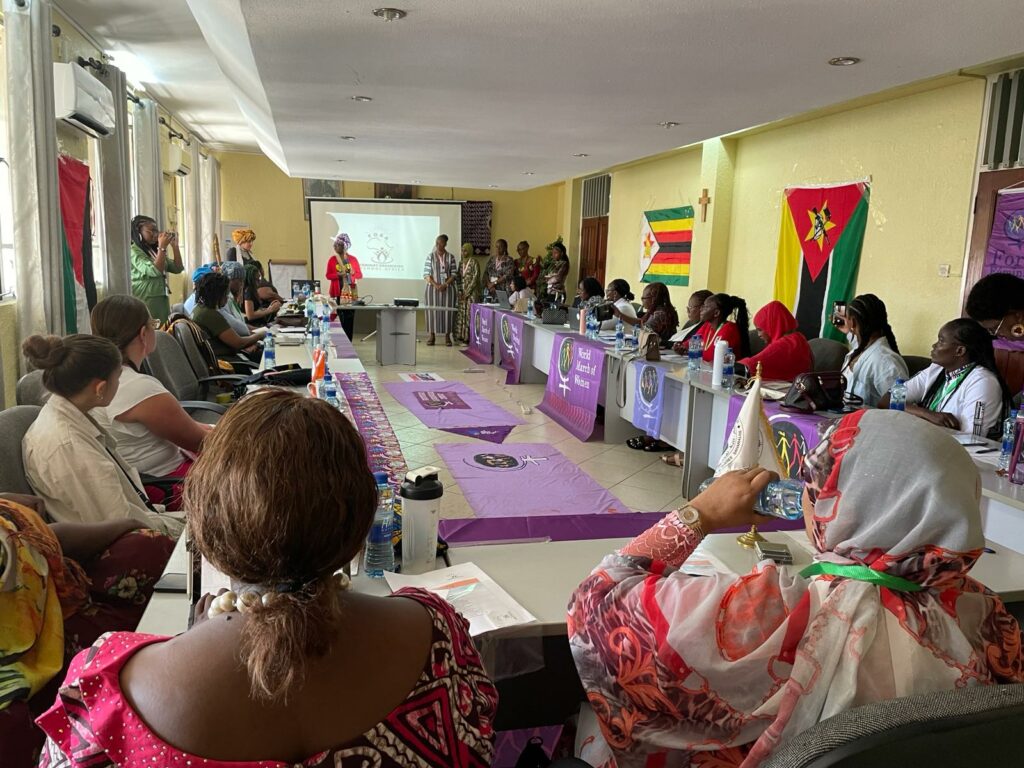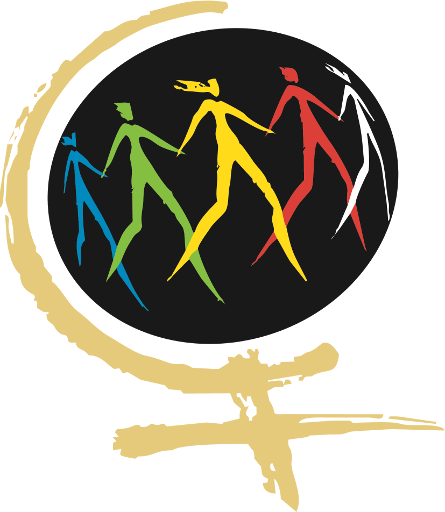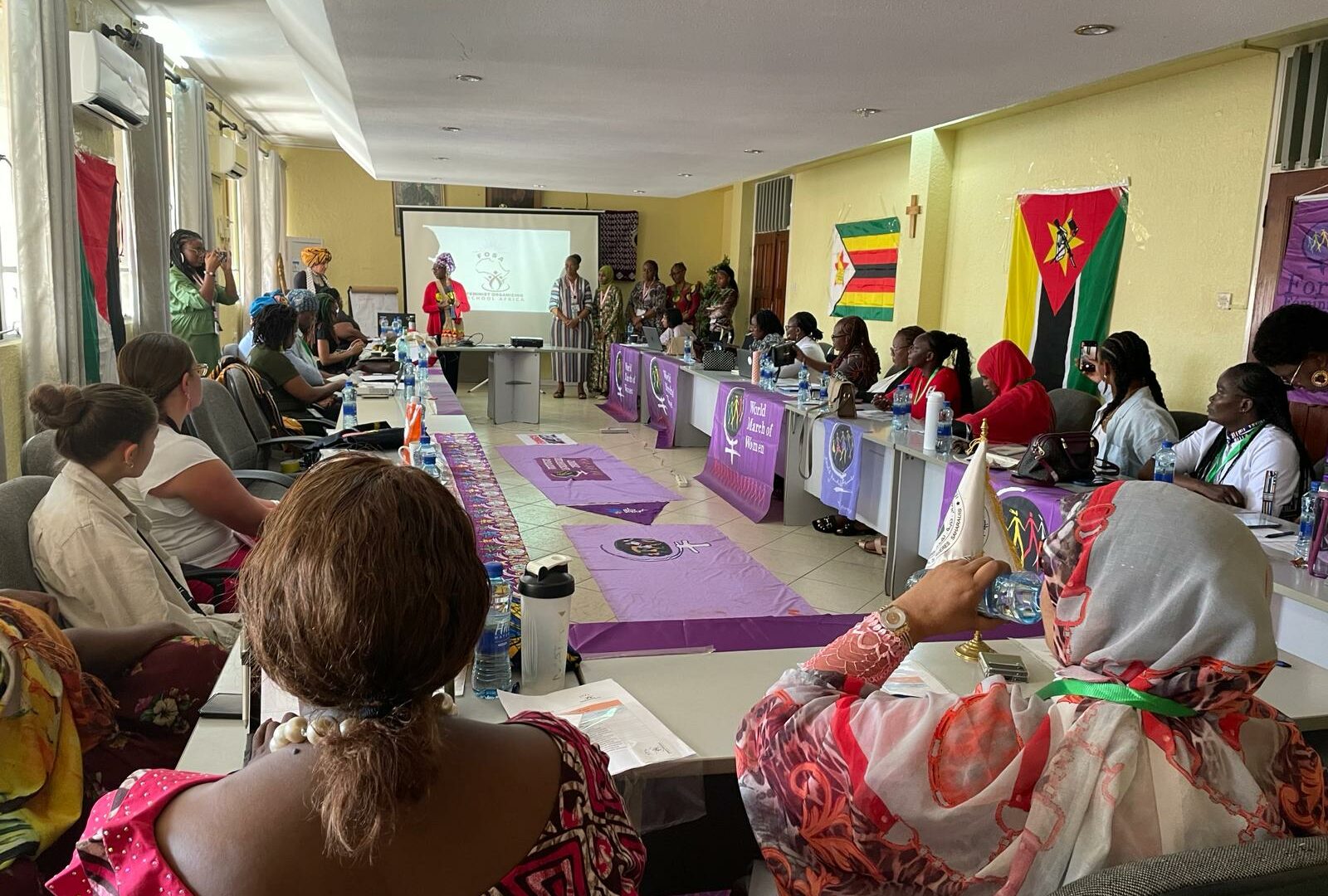Feminist Organizing School Anglophone Africa (FOSA)
Dar Essalam 4 – 9 April 2024
“Feminist Organizing School of Anglophone Africa (FOSA) Started in Dar Es Salaam”
The inaugural session of the Feminist Organizing School of Anglophone Africa (FOSA) commenced on April 4th in Dar Es Salaam, marking the beginning of a transformative journey for activists across the region. Over the course of five days, participants hailing from Kenya, Tanzania, Mozambique, Ethiopia, Zimbabwe, Zambia, Botswana, Swaziland, Uganda, Malawi, Western Sahara, South Africa, and South Sudan convened to address the pressing challenges facing social movements in Africa and explore the solutions. Also, the international Coordinator of the WMW, Yıldız Temürtürkan, attended the training.
FOSA represents more than just a training program; it embodies a concept, framework, and pedagogical approach tailored to the unique needs of African feminist militants. At its core, the school aims to tackle the obstacles hindering the advancement of social movements in Africa. In response to the challenges, FOSA was conceived and organized by dedicated militants of the World March of Women (WMW), drawing inspiration from the Berta Cáceres International Feminist Organizing School (IFOS).

Adapting the IFOS methodology to address regional concerns and issues, FOSA serves as a local counterpart, embracing the identity, locality, and grassroots activism characteristic of African communities. Throughout the program, participants engage in dynamic discussions covering a range of topics, including grassroots feminism, participatory learning and development processes, the interrelation between reproduction and production, the cultivation of anti-systemic alternatives, and the relationship between feminism and indigenous knowledge.
The school catalyzes dialogue, reflection, and action, fostering solidarity among participants and equipping them with the tools and insights needed to navigate the complexities of feminist activism in Africa. As the sessions unfold, attendees delve into the challenges and solutions inherent in advancing the feminist agenda on the continent, paving the way for a more just and equitable future for all.

